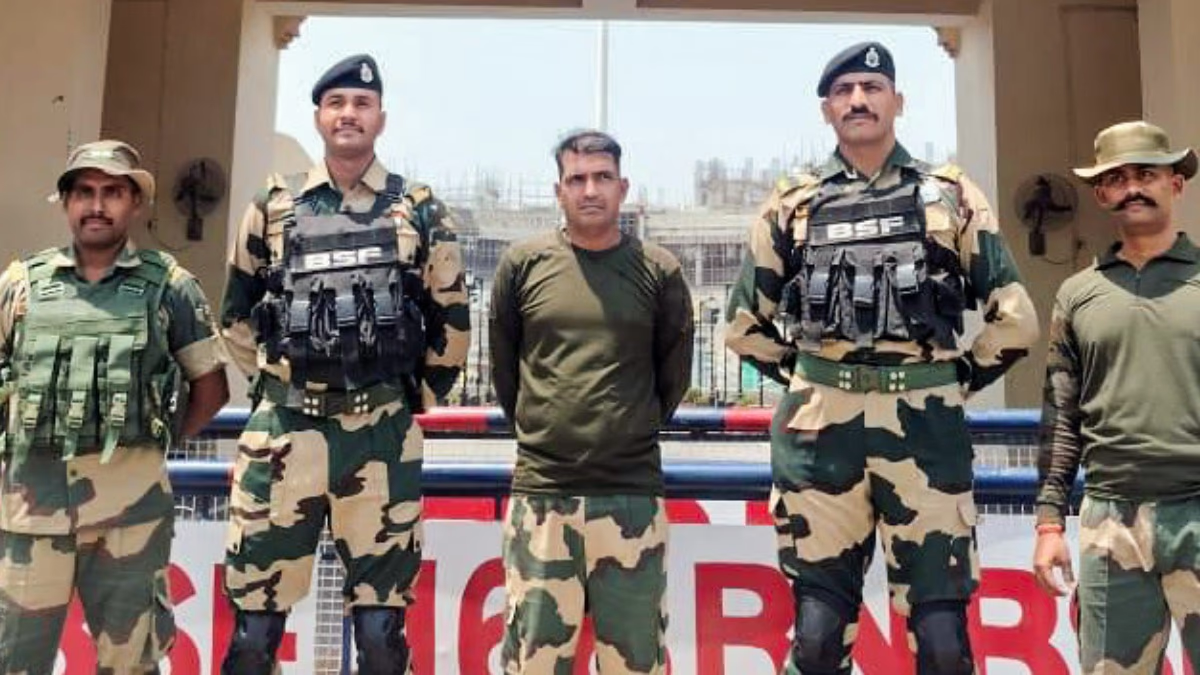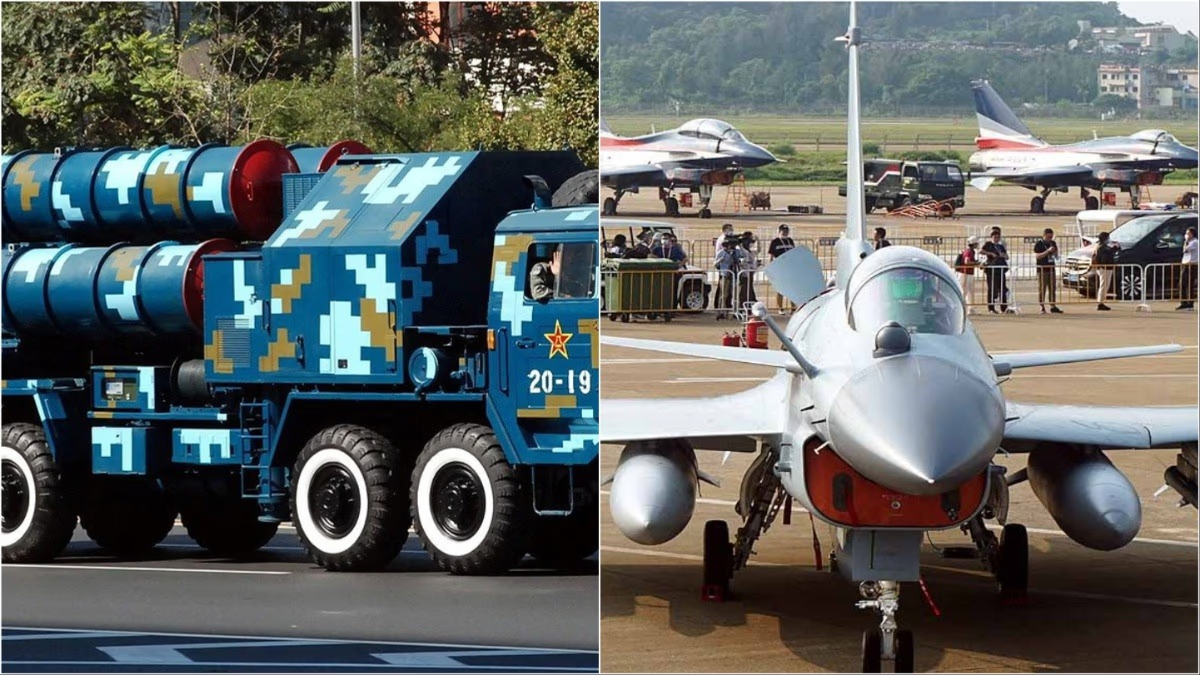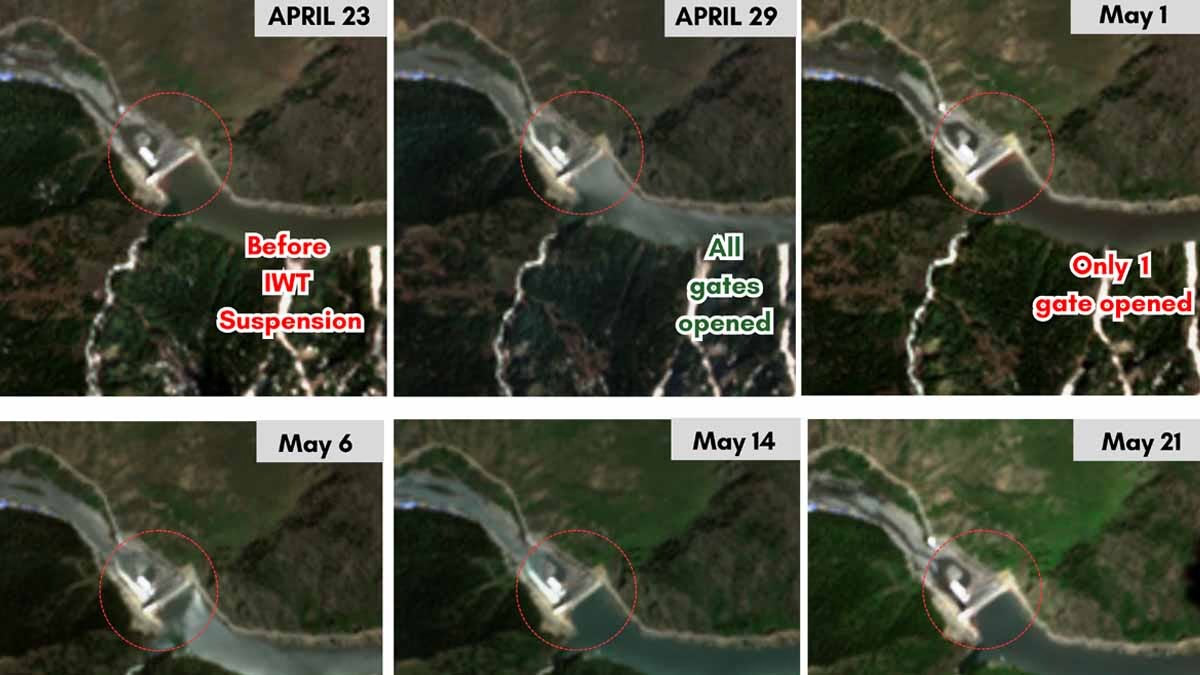Whenever the topic of India-Pakistan relations comes up, the story of 54 Indian soldiers missing since the 1971 war is always discussed. It is believed that these soldiers are still held in Pakistani prisons. Since Prime Minister Narendra Modi's government came into power, families of these soldiers hope that the nation will seriously contemplate their release from Pakistan. The swift return of BSF soldier Purnam Kumar reignites hope for those who have waited four decades for their family members, believing PM Modi will also ensure their safe return. Purnam Kumar's return signifies India's burgeoning diplomatic, military, and social strength. The story behind the soldier's release reveals that the Indian military also captured a Pakistani Ranger, compelling Pakistan to succumb to pressure.
This emphasizes the image of a New India that adopts a firm and active stance for the safety of its citizens and soldiers. Following surgical strikes, the return of pilot Abhinandan and naval officers facing death sentences in Qatar showcased the rising influence of the Modi government on international platforms. The issue of the return of 54 soldiers reignites old wounds.
1-The Mystery of 54 Indian Soldiers Allegedly Missing in the 1965 and 1971 Wars
The issue of 54 missing Indian soldiers is linked to the 1971 India-Pakistan war when these soldiers were either taken as prisoners of war or went missing. Most of them were from the Indian Army, Air Force, and other forces and are believed to be in Pakistani custody. The Indian government assumes that these soldiers might be in Pakistani prisons, but despite more than four decades, confirmation about their status, number, or survival remains absent.
In 2019, the Indian Ministry of Defense released the list of these 54 soldiers in the parliament, reigniting hope among their families. However, the families accused the government of not taking concrete steps in this direction.
An article in 'Organizer' mentions several events that suggest the imprisonment of these 54 Indian POWs in Pakistan. Although some might not be alive, others suffer from severe mental and physical ailments. The former Pakistani Prime Minister Zulfiqar Ali Bhutto, imprisoned in Lahore's Kot Lakhpat Rai Jail, wrote to jail officials urging the removal of Indian POWs from the adjacent barrack. Referring to Victoria's book, the article in the union's mouthpiece highlights Bhutto's letter mentioning the adjacent barrack holding about fifty deranged Indian prisoners whose eerie screams in the silent night continued to haunt him.
2-93,000 Pakistani POWs Returned to Pakistan
This event reflects the peak of injustice faced by those brave soldiers who valiantly fought for their motherland but were forgotten by their government, which released Pakistan’s 93,000 soldiers under the Shimla Agreement without ensuring their release first.
Following India’s spectacular victory in 1971, splitting Pakistan into two, India gained a clear advantage at the negotiation table. The then Prime Minister Indira Gandhi’s government generously returned the Pakistani soldiers captured on the eastern front, while Pakistan cleverly masked the status of Indian POWs in their records and hid their presence.
Brigadier (Retd.) H.S. Ghuman told India Today that ironically, India released their 93,000 captives but could not bring back the 54 Indians whose fate remains unknown. The reality is that their release efforts were half-hearted, neglecting both their sacrifice and the tears of their families who still live in hope of their return.
Researchers on the subject believe that there is ample evidence of the presence of Indian POWs in Pakistan. Examples cited include letters from Major Ashok Suri, Major A.K. Ghosh, Flight Lieutenant V.V. Tambay, and the case of Soldier Jaspal Singh. These cases occasionally surface, suggesting that many Indian POWs might be languishing in Pakistani prisons.
3-Sarabjit Singh’s Tragic End
Sarabjit Singh, an Indian farmer, was arrested in Pakistan in 1990 for mistakenly crossing the border. Accused of involvement in the 1990 bombings in Lahore and Faisalabad, which killed 14 people, he was sentenced to death by a Pakistani court in 1991 for espionage and terrorism. India claimed Sarabjit was innocent. His sister Dalbir Kaur campaigned for his release, but on 26 April 2013, inmates attacked him in Lahore's Kot Lakhpat Jail. He succumbed to his injuries on 2 May 2013. India labeled it a conspiracy by the Pakistani military-intelligence complex to escalate India-Pakistan tensions. At the time, India and Pakistan were attempting peace talks.
Imprisoned in Kot Lakhpat Jail, Sarabjit was among notorious inmates, signaling either a security lapse or a deliberate conspiracy. At the time of Sarabjit's murder (2013), India was perceived as a soft state. However, with the 2025 release of BSF soldier Purnam and progress in the Jadhav case, India's resilience has become evident. Sarabjit’s tragedy serves as a reminder of the need for vigilance and assertive diplomacy in India-Pakistan relations.
4-Pakistan Dares Not Execute Kulbhushan Jadhav Anymore
Kulbhushan Jadhav, a former Indian naval officer, was arrested by Pakistan in 2016 from Balochistan, accused of espionage for RAW and sabotage activities. In 2017, a military court sentenced him to death. India refuted the allegations, maintaining Jadhav was abducted from Iran, where he was on business. India highlighted a violation of the Vienna Convention, as Pakistan denied consular access. India escalated the case to the International Court of Justice (ICJ) in 2017. The ICJ stayed the execution and in 2019 directed Pakistan to review the sentence, grant consular access, and maintain the stay on execution. India regards this as a diplomatic victory.
India’s strengthening influence means Pakistan no longer dares to carry out Jadhav’s execution. It is believed that ICJ pressure, India’s military-diplomatic power, and Pakistan’s instability are restraining factors. In 2021, Pakistan passed a review bill, but denying an appeal right in 2025 violates ICJ directives. Jadhav remains imprisoned; the review process drags on. India claims consular access remains "uninterrupted." Unlike the 54 missing soldiers from 1971, India achieved success in the Jadhav case through the ICJ, showcasing New India’s strength.
5-Release of Wing Commander Abhinandan and Now BSF Soldier Highlights India’s Aggression
After the Pulwama attack on 14 February 2019, India conducted airstrikes on terrorist installations in Balakot. In retaliation, the Pakistani Air Force attempted to infiltrate Indian airspace. On 27 February 2019, Abhinandan, flying a MiG-21, shot down a Pakistani F-16 but ejected into Pakistani territory after sustaining damage. Pakistan detained him. India quickly mounted diplomatic and military pressure. The Ministry of External Affairs declared any action against Abhinandan as an act of war, and the global community, especially the USA, supported India. Within 60 hours, on 1 March 2019, Pakistan released Abhinandan. Later, Pakistani leaders admitted the release was out of fear of Indian retaliation. This demonstrated India’s assertive diplomacy and military prowess. Similarly, behind the release of BSF soldier Purnam Shaw, it emerged that soon after Pakistan captured Purnam, the BSF quickly retaliated by capturing a Pakistani Ranger, Mohammadullah. As a result, Pakistan was compelled to release Purnam.




